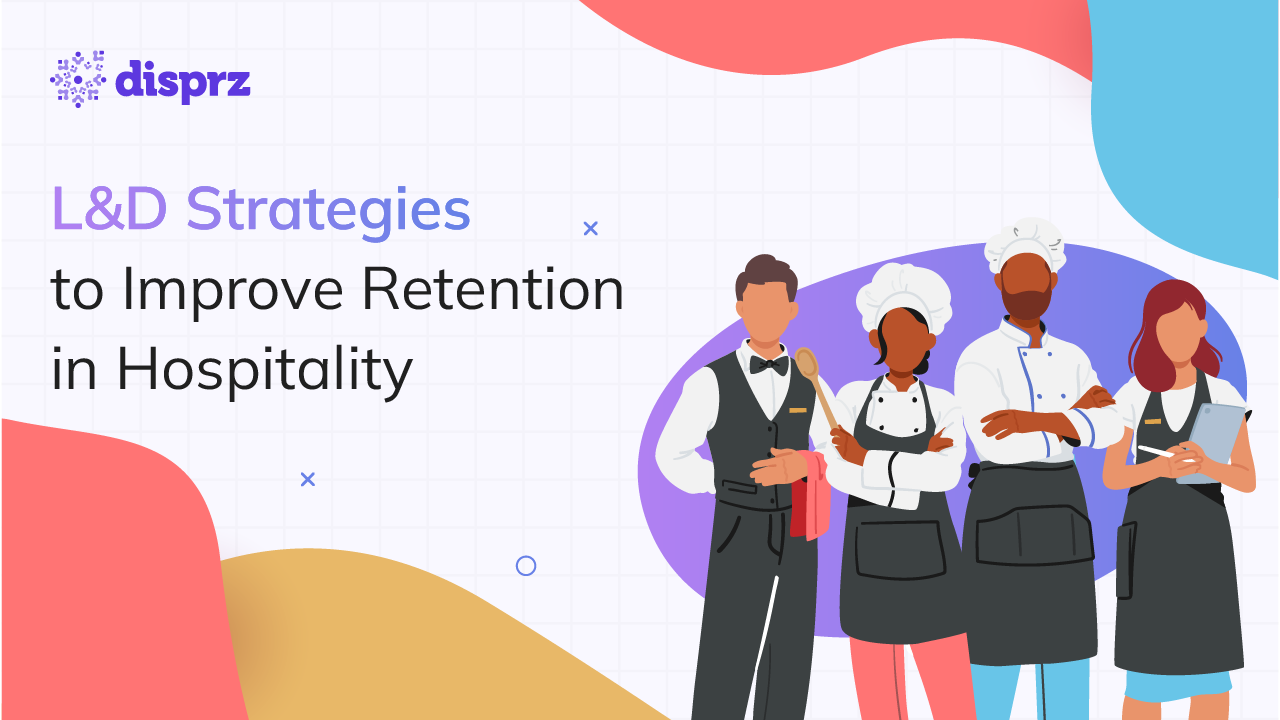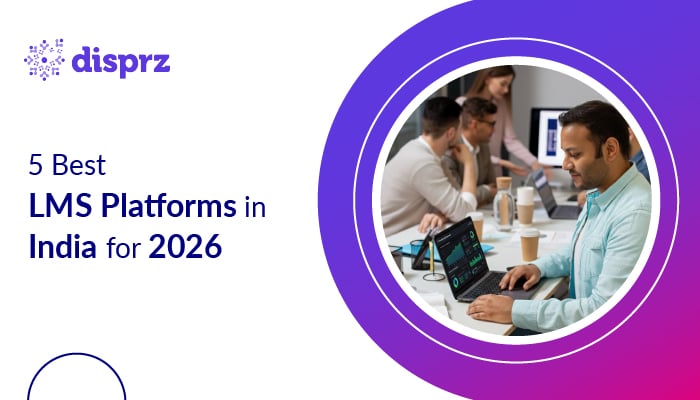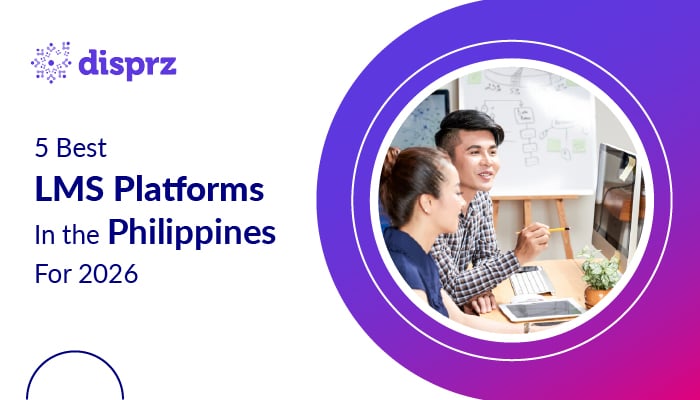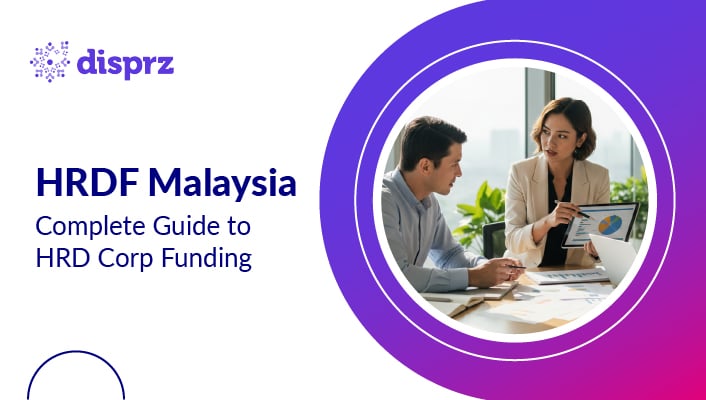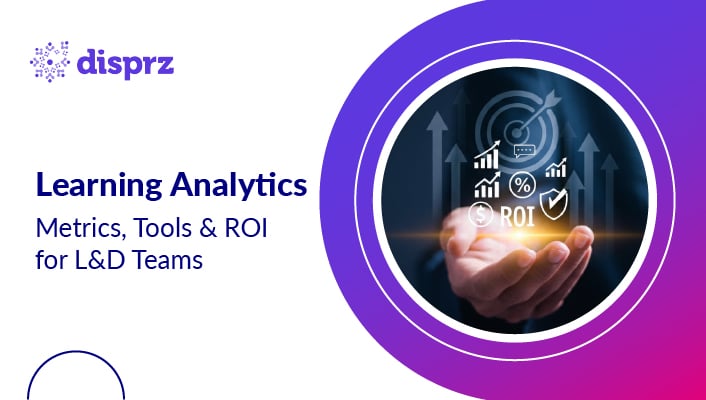Succeeding in the hospitality industry has always been difficult, but it has become even more challenging in recent years. In 2025 and beyond, hospitality leaders must navigate rising costs, unpredictable demand, increased competition, and an ongoing talent crisis.
Employee attrition remains the number one challenge. With an industry-wide turnover rate exceeding 70% annually, hospitality businesses struggle to retain skilled workers. But why do employees leave so frequently? The issue isn't just the demanding nature of the job; it’s outdated training models that fail to engage, upskill, and empower workers. Traditional hospitality staff onboarding, generic e-learning modules, and one-size-fits-all training don’t work in a high-pressure, customer-centric environment.
The solution to this isn’t just any Learning Management System (LMS); it’s a specialized training LMS built for the unique challenges of the hospitality industry.
A hospitality-focused AI-powered LMS in 2025 goes beyond generic training. It blends on-the-job learning, AI-driven role-based modules for skill development, and soft skills training, ensuring employees are not just trained but truly prepared to deliver standout guest experiences. Let’s explore how a specialized LMS unifies training, reduces turnover, and ensures hospitality businesses thrive in a fast-changing customer-driven ecosystem.
4 Major Training Challenges in Hospitality 2025
The hospitality industry operates in a fast-paced, customer-driven environment where service quality directly impacts business success. However, traditional training methods often fail to prepare employees for daily real-world challenges.
Here are the key training challenges hospitality businesses must address:

1) High Employee Turnover
With annual turnover exceeding 70%, businesses struggle with constant hiring, onboarding, and skill gaps, making scalable and engaging training essential.
2) Diverse Workforce & Learning Needs
Hospitality teams include full-time, part-time, and seasonal workers across multiple roles, requiring flexible, multilingual, and role-specific training solutions.
3) Service Excellence & Soft Skills
Employees must master not just operational consistency in tasks but also customer engagement, conflict resolution, and personalization to ensure memorable guest experiences.
4) Compliance & Safety Training
From food safety regulations to workplace safety protocols, businesses must ensure employees stay compliant with industry standards through ongoing, trackable training.
How a Hospitality-Focused LMS Solves These Challenges
A specialized LMS for the hospitality industry is designed to address the industry's unique training challenges by offering tailored, scalable, and engaging learning experiences. Unlike generic LMS platforms, a hospitality-focused LMS integrates real-world training, on-the-go accessibility, and role-specific skill development to empower employees and enhance service quality.
Here are 5 ways how it helps:
1) Reduces Turnover with Effective Onboarding & Continuous Learning
High turnover is a persistent challenge in the hospitality industry, often resulting from ineffective onboarding and limited growth opportunities. A well-structured hospitality onboarding program powered by an AI-driven LMS ensures new hires quickly adapt to their roles through interactive modules, video-based learning, and personalized learning paths. By providing a seamless and engaging onboarding experience, businesses can boost employee confidence, enhance engagement, and reduce early attrition.
2) Offers Role-Specific & Adaptive Learning Paths
Hospitality roles vary widely, from front desk associates to housekeeping, F&B staff, and management. A specialized LMS delivers role-based training with personalized learning journeys, ensuring employees develop the skills needed for their jobs while progressing in their careers.
3) Enables Mobile & On-the-Job Learning
Hospitality employees are always on the move, making traditional classroom-style training impractical. An advanced AI-powered LMS provides mobile-friendly, micro-learning content that employees can access anytime, anywhere, perfect for quick, real-world skill reinforcement during shifts.
4) Strengthens Soft Skills & Service Excellence
Technical skills alone aren’t enough; hospitality workers must excel in communication, problem-solving, and customer service. A specialized LMS incorporates scenario-based simulations, gamification, and real-world guest interaction training to enhance soft skills. With service excellence modules, employees gain hands-on learning experiences that help them confidently handle guest interactions, resolve issues effectively, and deliver consistently high-quality service.
5) Ensures Compliance & Standardized Training Across Locations
From food safety regulations to workplace safety protocols, an industry-focused LMS automates compliance training, tracks certification status, and ensures all employees, whether in a single location or across global properties, meet industry standards consistently.
By integrating guest experience training with AI-driven learning paths and mobile accessibility, a specialized hospitality LMS empowers employees to deliver exceptional service while staying engaged and motivated in their roles.
Choosing the Right Hospitality LMS for 2025
Not all LMSes are built for the fast-paced, customer-driven world of hospitality. A generic LMS might offer basic training functions, but a hospitality-focused LMS is essential to address the industry's unique challenges, such as high turnover, diverse workforce needs, and the demand for exceptional service.
As you evaluate LMS options for 2025, here are the key factors to consider:
1) Industry-Specific Features & Role-Based Learning
A hospitality LMS should provide tailored learning paths for different roles, such as front desk, housekeeping, food & beverage, and management, ensuring employees receive role-specific, skill-based training rather than generic content.
Look for features such as:
-
Interactive simulations for real-world scenarios (e.g., handling guest complaints, upselling techniques)
-
AI-driven learning recommendations based on job roles and skill levels
-
Hands-on, scenario-based training to enhance problem-solving and service delivery
2) Mobile Accessibility & Microlearning for On-the-Go Training
Hospitality employees are always on the move, making desktop-based training impractical.
Choose an LMS that offers:
-
Mobile-friendly learning modules accessible on any device
-
Microlearning courses for quick, on-the-job knowledge reinforcement
-
Offline learning options so that employees can train even in areas with limited connectivity
-
Multilingual training modules for ease of learning in preferred language.
3) Gamification & Engagement to Reduce Turnover
Training that feels like a chore leads to disengagement.
A hospitality LMS should include:
-
Gamified learning with badges, leaderboards, and rewards to drive motivation
-
Social learning features, such as peer-to-peer collaboration and discussion forums
-
AI-powered personalized learning experiences that keep employees engaged and continuously growing
4) Compliance & Certification Management
The hospitality industry requires strict adherence to health, safety, and operational regulations.
Ensure your LMS:
-
Automates compliance tracking for food safety, workplace safety, and regulatory training
-
Issues certifications upon course completion and provides renewal reminders
-
Standardizes training across multiple locations for consistent service quality
5) Integration with Hospitality Systems & Analytics for Insights
Your LMS should seamlessly integrate with property management systems (PMS), HR platforms, and other tools to track performance, training effectiveness, and workforce development.
Key capabilities include:
-
Data-driven insights to measure employee training impact on service quality and guest satisfaction score.
-
Integration with HR and scheduling tools for streamlined training management
-
AI-powered analytics to identify skill gaps and recommend personalized learning paths
Wrapping up
In an industry where service excellence standards are everything, businesses can’t afford to let high attrition and skill gaps dictate their future. With guest expectations rising and staff shortages putting service quality at risk, HR and L&D leaders must act now to stabilize and strengthen their workforce. The key lies in understanding the shifting labor landscape, tapping into new talent pools, and equipping employees with the right skills to deliver exceptional service. This is where an AI-powered LMS becomes a game-changer.
Disprz is at the forefront of transforming workforce training in the hospitality industry. Its AI-powered LMS platform goes beyond traditional learning methods, offering personalized, data-driven training that accelerates skill development and enhances employee engagement. By analyzing workforce performance and learning patterns, Disprz ensures that employees receive the proper training at the right time, empowering them to deliver exceptional guest experiences while staying motivated and invested in their roles. Now is the time to rethink workforce development, invest in innovative training, and build a resilient, future-ready team.



